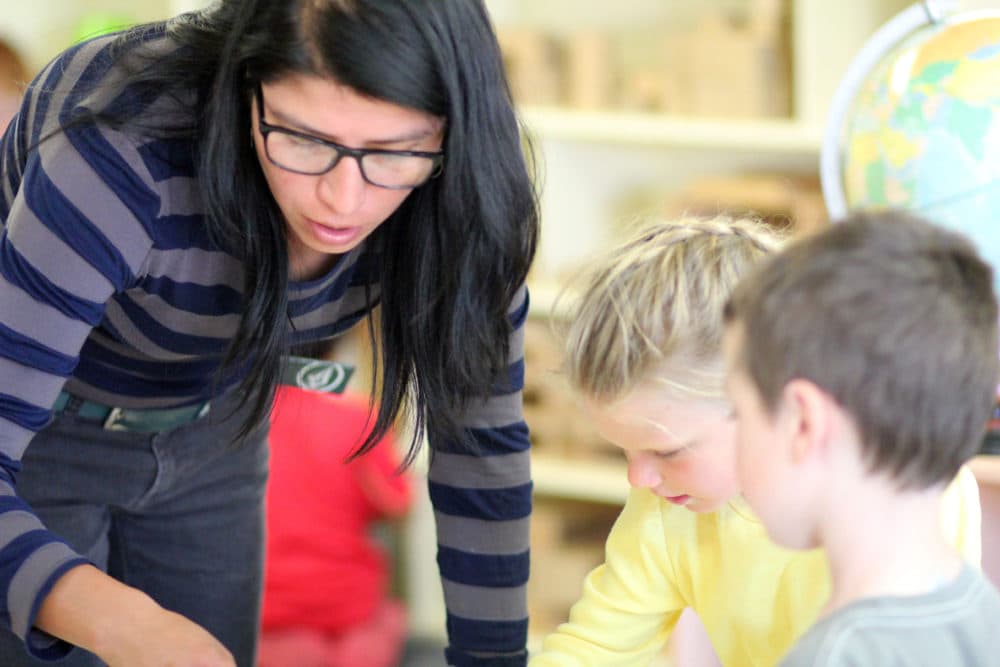Advertisement
Not 'out of the woods' yet: Latest jobs data shows child care jobs slowly returning

The child care workforce is severely underpaid and is struggling to rebound to pre-pandemic levels. The average pay in the industry is just over $13 an hour.
And, a lack of workers has huge implications for the economy, as working parents seek employment or return to the office.
The latest jobs data shows the sector is slowly inching back.
Caitlin McLean runs multi-state and international programs for the Center for the Study of Child Care Employment at the University of California, Berkeley. She and her team reviewed data specific to people who work in child care for little ones, like Headstart and preschool, and also other programs for school-aged children. But their analysis doesn't include workers who are self-employed, like those who operate daycares out of their home.
Interview highlights
On what she learned from recent child care services jobs data
“Our latest report shows we've gained about 5,000 jobs most recently. But, we lost a lot of jobs at the start of the COVID-19 pandemic, really about a third of jobs. Since then, we've been tracking to see how the sector is faring. And over the summer, we saw some stagnation, even some decline. But most recently, we have seen a little bit of an uptick. I think folks are hopeful, but we're not out of the woods just yet because we're still down about 8% compared with where we were before the pandemic.”
On why recovery has been sluggish
“I think we have to keep in mind that child care was struggling even before the pandemic. So parents had a hard time paying the high prices, and child care businesses had a hard time paying their workers. And then the pandemic just made everything so much worse because they had new costs from keeping smaller groups and masks and PPE and all these things.
“A ton of programs closed and some folks decided they would be better off doing different kinds of work. Working in child care, it's hard enough as it is. But then when you add a global pandemic on top of that and you're earning basically poverty-level wages, I don't think we should be surprised that we've seen a lot of folks leaving the field for better-paying jobs and easier working conditions elsewhere.”
On the outlook on a state level
“I would say some states have been more proactive, but the real lifeline that's come through for child care was the American Rescue Plan. Those funds have really been helping to prop up what is otherwise a collapsing sector. So I think now folks are really looking ahead to when those funds expire and are wondering what will happen then. If these funds have really been keeping folks going and more funds aren't coming down the line, I think we can expect more jobs to be lost.”
On what the outlook means for the economy:
“It's really terrible news. We have to remember that America runs on child care. If we don't have child care, families can't go to work and kids are missing out on crucial early learning opportunities.”
Ashley Locke produced and edited this interview for broadcast with Catherine Welch. Locke also adapted it for the web.
This segment aired on December 7, 2022.

